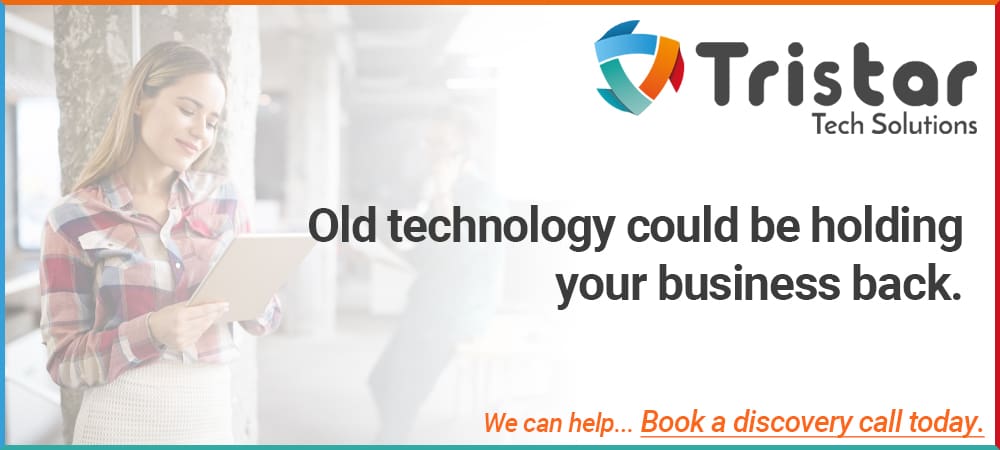Why your legacy applications are holding back your digital transformation
What are legacy applications?
The term ‘legacy’ in computing is commonly used to refer to old technology, an old computer system, application, or an old method that is still in use and serves a purpose. For example, Windows 3.1 applications were legacy apps when Windows 95 was introduced, and Windows 7 applications running in Windows 8 are also legacy Apps. Some reference a system as a legacy when it is considered to have paved the way for the standards that follow it.
Some examples of legacy apps include Excel, Access Documents, and any Windows application below Windows 7 as they are no longer supported by Microsoft. Legacy apps are apps that don’t connect to the cloud creating an unnecessarily difficult work environment with the options available today, we will explore these options more in the following blog series.
A feature of legacy apps that is worth remembering is that some legacy apps are considered critical to day to day operations in a business, even though the modern updated options are out there. This can be due to the business manager not having a dedicated IT specialist that will reinforce the benefits of updating. It could be as simple as them knowing the system and not wanting to risk potential problems with the day to day running of the business with (as they perceive) unnecessary changes.
Why are legacy applications holding back your business?
As much as legacy apps are important to some businesses out there, as a general rule, updating your applications can only be good for the general day to day of running a business.
There are many reasons why moving from legacy apps will be beneficial to you as a business, both practically and financially. Firstly, the cost involved as applications age can stop the app from being cost-effective, vendors raise support charges with age and internal knowledge becomes harder to come by as the platform evolves. Another reason is their proprietary, many legacy tools include their own unique methodologies, programming languages and management tools. Modern applications more commonly use generic programming language relevant across platforms allowing people with knowledge to work on a variety of different applications. With the advancements in technology and business processes, departments across a business have evolved, abandoning your legacy apps gives you a chance to adopt the modern practice and let go of workarounds and convoluted processes. Many companies still rely upon that one person that has been in the company for years to understand a legacy application due to everyone else retiring or having left the company. “If you have a question talk to him”, “if there’s a problem talk to him”, this is a poor way for a business to run. Take the opportunity while the knowledge of the application is slowly filtering out of the company to slowly filter the application itself out of the company too.
Legacy systems are often no longer supported and do not benefit from vendor updates, which fix stability issues and bugs In the system. This can cause them to be inefficient, unstable and most worryingly insecure, potentially leaving your system infrastructure open to malware viruses.
A big reason why moving from legacy systems may be the best thing for your business is the risk that you may not be GDPR compliant if voluntarily using unsupported software. By law software containing sensitive information must be on a system that is updated to its latest version and therefore supported by the provider.
What are the options to digitally transform your legacy applications?
There is light at the end of the tunnel. There are ways to transform your working environment and bring it up to speed with the modern world with ‘live’ access via web-based databases to replace ‘Access’ databases or large clumsy Excel spreadsheets. Or for alternative legacy applications that are industry-specific pieces of software, instead modernise the infrastructure hosting and operating those types of platforms within the ‘Cloud’ providing access to users in a familiar way, but via RemoteApps. We will explore these together in more detail in the next blog series.
Do you have concerns about legacy applications in your business? We can help!
We are Tristar! We offer trustworthy, cost-effective expertise and consultancy for your IT problems. With our hybrid of software development and cloud hosting expertise, we are more than capable of making your transition from Legacy applications to a modern alternative a reality! Contact us today to book a free discovery call to learn about options to best address your business technology challenges and needs.
Want to get the best solution for your business?
At Tristar Tech Solutions, we take a realistic approach to technology – ensuring our client’s systems are best protected.
If you have any concerns, questions or simply want to explore how to better secure your business, please do get in touch with the team for a FREE demonstration, consultation to explore how exposed your business might be and identify actions to take.
To book a consultation or to arrange a further discussion, please get in touch.
If you’re looking for IT support in Hertfordshire or IT support in North London, contact us today, and a member of our team would be more than happy to advise you.



